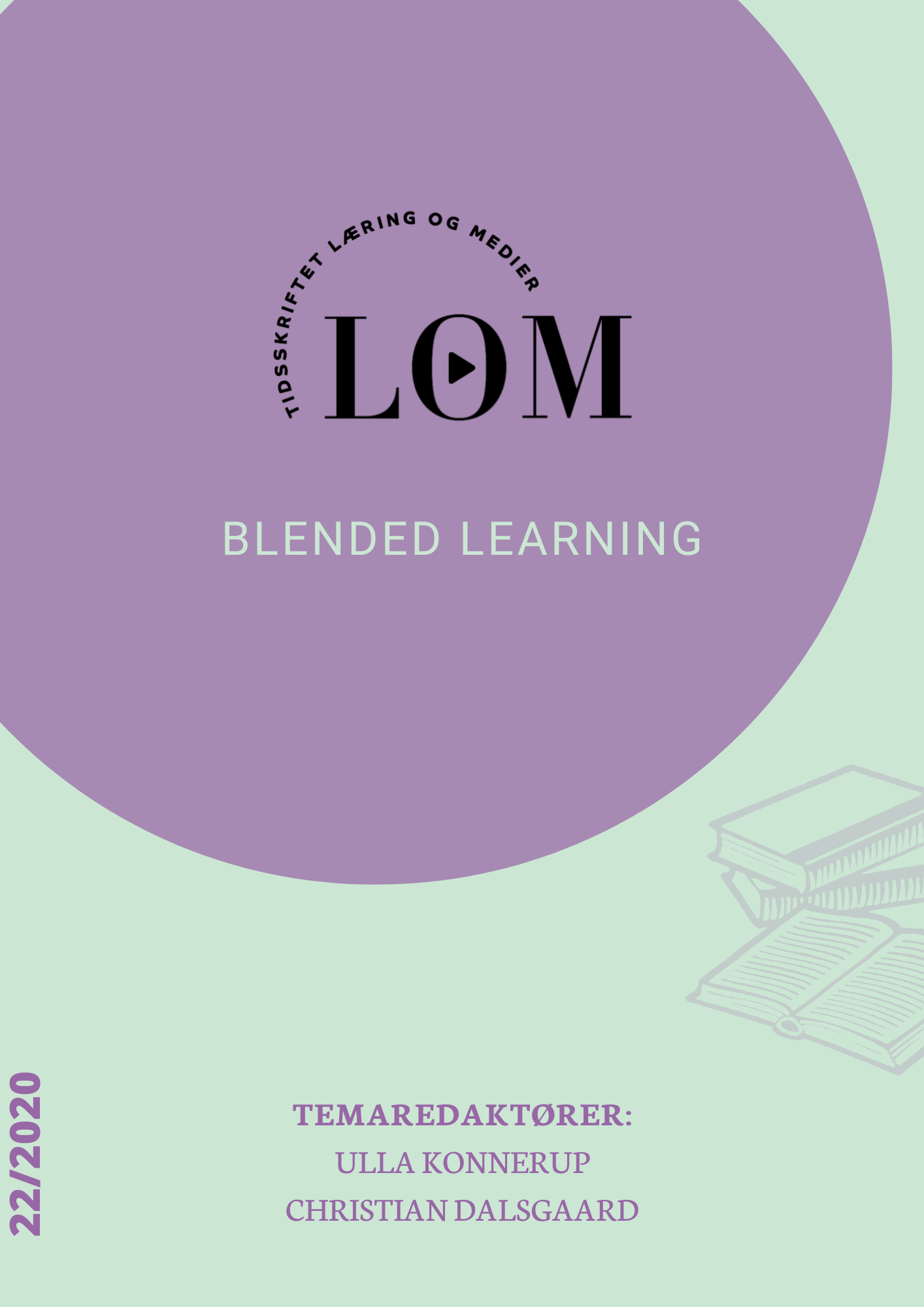Online Peer feedback
Anvendelsen af Peergrade i universitetsundervisningen
DOI:
https://doi.org/10.7146/lom.v12i22.114504Keywords:
peer feedbackAbstract
Peergrade is a digital tool that can be used to support peer feedback activities; This article describes the use of the tool in university teaching, more specifically in the subject Prehistoric Archeology II at Aarhus University. The activities were not compulsory, but the improved portfolio assignments were included in the students' individual exam portfolio, which was handed in prior to the oral examination in the subject. We describe the students experiences based on their responses to the questionnaire and participation in focus group interview. We describe recommendations for using peer feedback activity with Peergrade in university teaching.
Downloads
References
Cho, K., & MacArthur, C. (2010). Student revision with peer and expert reviewing. Learning and Instruction, 20(4), 328–338. https://doi.org/10.1016/j.learninstruc.2009.08.006
Dalsgaard, Christian, & Paulsen, M. F. (2009). Transparency in Cooperative Online Education. The International Review of Research in Open and Distance Learning, 10(3).
Dlu, R. and Bol, L., (2007). A comparison of anonymous versus identifiable e-peer review on college student writing performance and the extent of critical feedback. Journal of Interactive Online Learning, 6(2), pp. 100-115.
Hattie, J., & Timperley, H. (2007). The power of feedback. Review of educational research, 77(1), 81-112.
Hvass, H., & Heger, S. (2018). Brugbar peer feedback: Instruktion og træning, før de studerende selv skal give og modtage. Dansk Universitetspædagogisk Tidsskrift, 13(25), 59-70. Hentet fra https://tidsskrift.dk/dut/article/view/97052
Kvale, S., & Brinkmann, S. (2009). Interview: introduktion til et håndværk. Hans Reitzels Forlag.
Løvschal, M (2018). Peer feedback med Peergrade. AU Educate: http://educate.au.dk/praksiseksempler/peer-feedback/peer-feedback-med-Peergrade/
Lundstrom, K. and Baker, W. (2009). To give is better than to receive: The benefits of peer review to the reviewer's own writing. Journal of Second Language Writing, 18(1), pp. 30-43.
Nicol, D. 2010. “From Monologue to Dialogue: Improving Written Feedback in Mass Higher Education.” Assessment & Evaluation in Higher Education 35(5): 501–517
Reddy, Y.M. and Andrade, H., 2010. A review of rubric use in higher education. Assessment & Evaluation in Higher Education, 35(4), pp. 435-448.
Van Gennip, N.A.E., Segers, M.S.R. and Tillema, H.H., 2009. Peer assessment for learning from a social perspective: The influence of interpersonal variables and structural features. Educational Research Review, 4(1), pp. 41-54.
Vanderhoven, E., Raes, A., Montrieux, H., Rotsaert, T., & Schellens, T. (2015). What if pupils can assess their peers anonymously? A quasi-experimental study. Computers & Education, 81, 123-132.
Downloads
Published
How to Cite
Issue
Section
License

Articles published in the Journal of Learning and Media are licensed under a Creative Commons Attribution-NonCommercial-NoDerivatives 3.0 Unported Licens.
Authors retain copyright and grant the journal right of first publication; simultaneously articles are licensend under the Creative Commons Attribution license: Attribution-NonCommercial-NoDerviatives (by-nc-nd). Read about this license at https://creativecommons.org/licenses/by-nc-nd/3.0/
---
At LOM.dk, you will also find articles from the discontinued Journal for the Continuing and Further Education of the Danish Universities (UNEV). Note that special rules apply to UNEV articles:
It is the authors and any other copyright holder who have the copyright of articles published under the auspices of UNEV, and access to the articles is contingent on users acknowledging and complying with the associated legal guidelines:
- Users may download and print one copy of any UNEV publication for private studies or research.
- The redistribution of articles or the use of these for revenue-funded activities or commercial purposes are not allowed.
- It is not allowed to distribute the URLs of UNEV articles.


